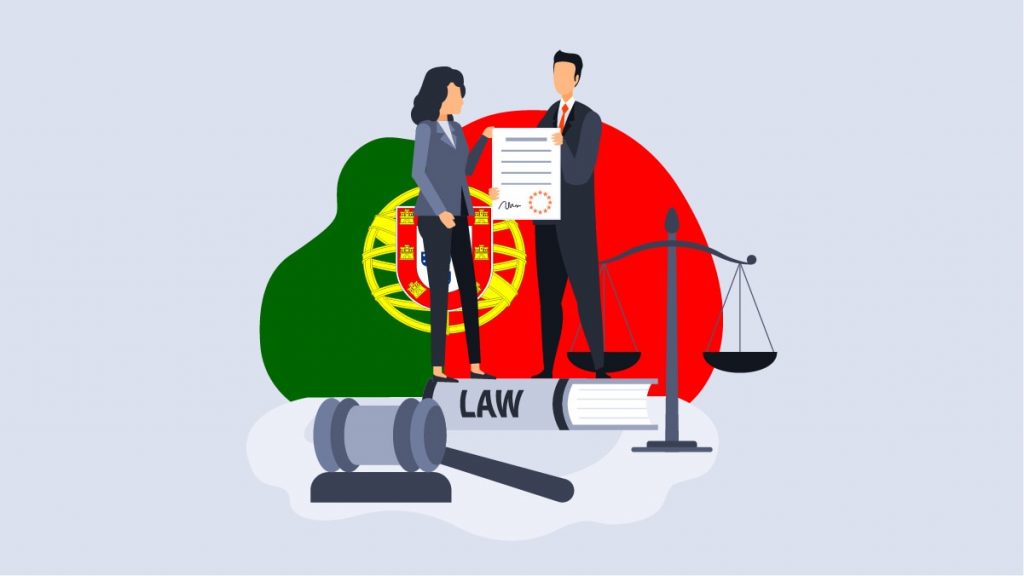What is the EU Whistleblowing Directive and how is Portugal affected?
Under the EU Whistleblowing Directive, all private and public sector employers with 250 employees or more were required to implement a whistleblowing system by 17 December 2021 at the latest, a deadline most member states missed. Smaller organisations with between 50 and 249 employees were given more time – until 17 December 2023. Portugal’s efforts to transpose the EU Whistleblowing Directive began on January 1, 2020 when Justice Minister Francisca Van Dunem announced that the Portuguese government intended transposing it later that year. The process took slightly longer than expected and the initial steps were taken in April 2021 when a new national anti-corruption strategy was approved by the Council of Ministers. That strategy progressed to a vote on proposals for a whistleblowing framework in June 2022 and it all culminated in the final parliamentary vote that November.
Portugal and the new whistleblowing law: the road to transposition
- July 2018: Transparency International Portugal publishes report on the state of Portuguese whistleblower protection
- January 2020: Justice Minister announces government intention for EU Whistleblowing Directive transposition later in 2020
- September 2020: Portuguese government introduces National Strategy Against Corruption focused on developing a general corruption prevention regime
- October 2020: Public consultation on government’s anti-corruption strategy ends and NGOs respond
- April 2021: National Strategy Against Corruption is approved and it acts as first step in the transposition of the EU Whistleblowing Directive
- June 2021: Vote is scheduled on proposals for a whistleblowing framework
- November 2021: Portuguese parliament approves draft whistleblower protection law by majority vote and the EU Whistleblowing Directive is implemented
- June 2022: Legislation came into force
The situation in Portugal before the EU Whistleblowing Directive
Transparency International Portugal released a comprehensive report into whistleblowing in Portugal in 2018 and it stated that the topic has become increasingly discussed and scrutinised by the pubic in recent years. Over the past decade, national reform programmes prioritised the fight against corruption and related crimes as themes of the modernisation of the state through the delivery of more transparent and democratic justice. Nevertheless, Portugal had no legal obligation for companies to establish a whistleblowing system before the November vote and legal protection for whistleblowers was extremely limited. That was the case for public and private sector employees alike and there was no government agency responsible for the support and protection of whistleblowers.
Portugal’s new whistleblowing law: the specifics
The document approved by parliament states that the new law “benefits from the protection conferred by this law the whistleblower who, in good faith, and having serious grounds to believe that the information is, at the time of complaint or public disclosure, true, denounces or publicly discloses an offence under the terms established”.
The key points for companies are:
- Immediately affects any organisation with 50+ employees
- The creation of functional whistleblowing channels
- The establishment of measures to protect and support whistleblowers
- The prohibition of any form of retaliation
- Whistleblowers can include public, private or social sector workers including volunteers and interns, whether remunerated or unremunerated
- Anonymous whistleblowers who are later identified shall benefit from protection
- Individuals assisting the whistleblower such as work colleagues and legal professionals will be afforded protection
- An individual filing a complaint with EU institutions, bodies or offices will enjoy protection under the same conditions
- Feedback must be provided within 7 days
- Whistleblower must be informed of the measures taken within 3 months
- The complainant may request, at any time, the results of the investigation within 15 days of its conclusion
Portugal leads the way
In recent years, critics have commented on the country’s lack of whistleblower protection legislation and the late November 2022 vote represented huge progress for Portuguese business. The transposition saw Portugal outpace most other EU member states in establishing a new whistleblowing law with Denmark and Sweden the only other countries to do so at such an early stage.
What was particularly surprising about Portugal’s transposition process was its speed and lack of publicity. A Transparency International report looking at the early adoption of the EU Whistleblowing Directive across Europe stated that “there was limited information regarding the transposition process”, in Lisbon. Despite the lack of publicly available information, the Portuguese government took the transposition process extremely seriously behind the scenes and Portugal can proudly count itself among the first countries to have managed to implement the legislation into national law.
You can view the final version of the Portuguese law here (in Portuguese).
Whistleblowing Laws in the European Union
A glance at the implementation of the EU Whistleblowing Directive in EU Member States









